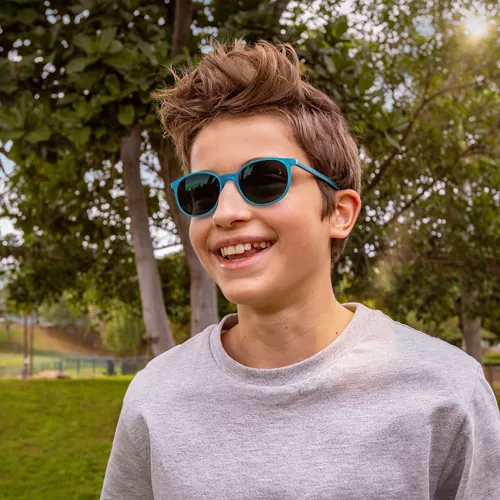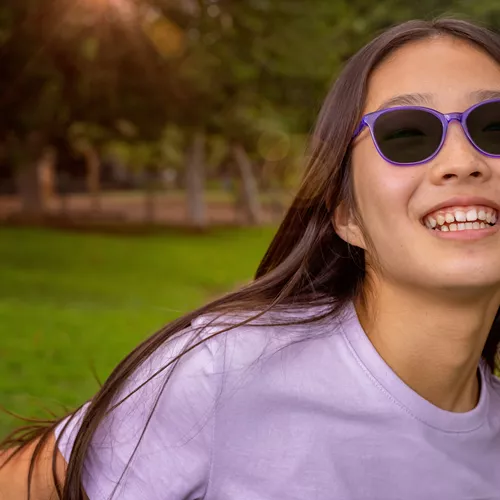Children are more susceptible to eye damage from UV light than adults, as the majority of lifetime sun exposure occurs under the age of 21, so it is especially important to offer them effective and reliable sun protection.5-7 This is because children’s pupils are larger and the lenses of their eyes are more transparent, which allows more UV rays to reach the retina.6 Furthermore, single-vision sunglasses may not be the most effective myopia management solution for myopic children.8,9
Myopic children on atropine treatment are particularly likely to experience photophobia, due to atropine dilating the pupil.10-12 Intense sunlight may put them off going outdoors, playing sports and joining activities that are good for their wellbeing.





